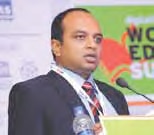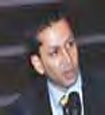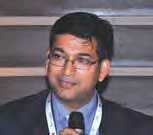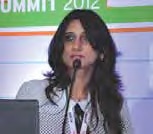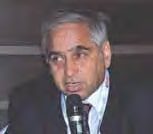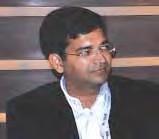
Dr A S Vasudev,
Executive Director, Indian Academy of Pediatrics
Due to heavy school bags children suffer from backache
Health is not only absence of disease; rather it is also a state of complete physical, mental and social well being. The health of the preschools children should include monitoring of physical growth and also a process of continuous health check-ups through a qualified paediatrician.
Hygiene is another important concept. Children have to be inculcated the values of hand washing, clean uniforms, clean nails, etc.
Vaccination is another preventive measure in healthcare. Eye check up once in the first five years helps to pick up many abnormalities which hamper the performance of the child. De-worming of children has to be done, as it reduces the problem of anaemia in children. The child should not be burdened with writing at an early stage as the hand muscles have yet not developed and it causes permanent handwriting problems.
Today’s child has to go through overburdened school bags, congested school buses, enormous amount of homework and sometimes physical punishments too. Lighter bags can be achieved by segregating the books and using sheets, which can be compiled at home so that books don’t have to be carried. There should be a system of no homework and examinations for students till class 5 and no second languages.
Due to heavy school bags children suffer from backache. Children have to be taught the proper technique of carrying bags with both straps at proper centre. Proper transportation is also needed. Safety of children is of utmost importance has to be looked into.
Classrooms should be illuminated and ventilated for the child to read and write without difficulty. Proper playgrounds, verandas before classes and enough doors and windows in the classrooms should be made mandatory. Schools have about one urinal for 60 students and these are unclean and unhygienic to use. Schools should have separate toilets for both genders and also ensure daily toilet cleaning to be made compulsory.
Teachers, parents, regulatory authorities and school management have to work together to find child friendly school initiatives to ensure that the child gets great school learning experience where he wants to come even on holidays.
